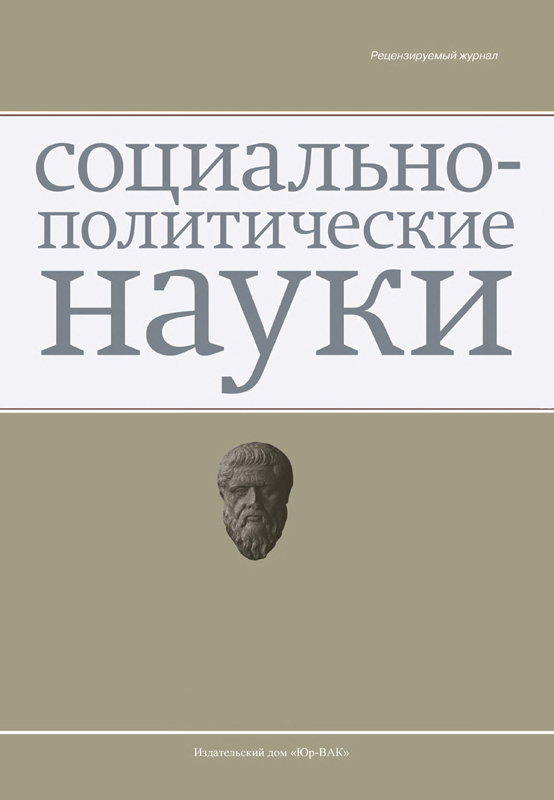Public Confidence in Official Sources of Information in Crisis Situations
- Authors: Tyurikov A.G.1, Kunizheva D.A.1, Markov D.I.1, Mishin K.Y.1
-
Affiliations:
- Financial University under the Government of the Russian Federation
- Issue: Vol 12, No 5 (2022)
- Pages: 54-63
- Section: Articles
- URL: https://journals.eco-vector.com/2223-0092/article/view/535777
- DOI: https://doi.org/10.33693/2223-0092-2022-12-5-54-63
- ID: 535777
Cite item
Abstract
Keywords
Full Text
About the authors
Alexander G. Tyurikov
Financial University under the Government of the Russian Federation
Email: agtyurikov@fa.ru
Dr. Sci. (Sociol.), Professor; Head of the Department of Sociology of the Faculty of Social Sciences and Mass Communications Moscow, Russian Federation
Diana A. Kunizheva
Financial University under the Government of the Russian Federation
Email: dakunizheva@fa.ru
postgraduate student; assistant at the Department of Sociology of the Faculty of Social Sciences and Mass Communications Moscow, Russian Federation
Dmitry I. Markov
Financial University under the Government of the Russian Federation
Email: dimarkov1998@yandex.ru
postgraduate student; assistant at the Department of Sociology of the Faculty of Social Sciences and Mass Communications Moscow, Russian Federation
Kirill Yu. Mishin
Financial University under the Government of the Russian Federation
Email: kymishin@fa.ru
Deputy Head of the Educational and Scientific Sociological Laboratory at the Department of Sociology of the Faculty of Social Sciences and Mass Communications Moscow, Russian Federation
References
- Chuprov V.I., Mikheeva V.V. Trust in society as a factor in overcoming the crisis. Social and Humanitarian Knowledge. 2015. No. 4. Pp. 237-251. (In Rus.)
- Markov D.I. On the role of trust in the institution of individual pension capital. In: Financially competent behavior of modern youth: education, behavior strategies, social practices for the implementation of financial culture: Collection of scientific articles. Moscow, October 11-13, 2019. Moscow, 2019. Pp. 349-357.
- Tsaranov K.N., Tarbastaev A.G., Markov D.I., Komolova O.A. Dynamics of loyalty of patient representatives before and during the COVID-19 epidemic on the example of the Moscow children’s polyclinic to organizations. Health Manager. 2022. No. 7. Pp. 16-25. (In Rus.) doi: 10.21045/1811-0185-2022-7-16-25.
- Tyurikov A.G., Markov D.I., Mishin K.Yu. Evaluation of the regional information Internet space for improving the financial literacy of the population of Russia. Self-management. 2019. Vol. 2. No. 4 (117). Pp. 329-332. (In Rus.)
- Blau S. In the power of numbers. How numbers control our lives and mislead us. Moscow: Azbuka-Atticus, CoLibri, 2022. 220 p.
Supplementary files









